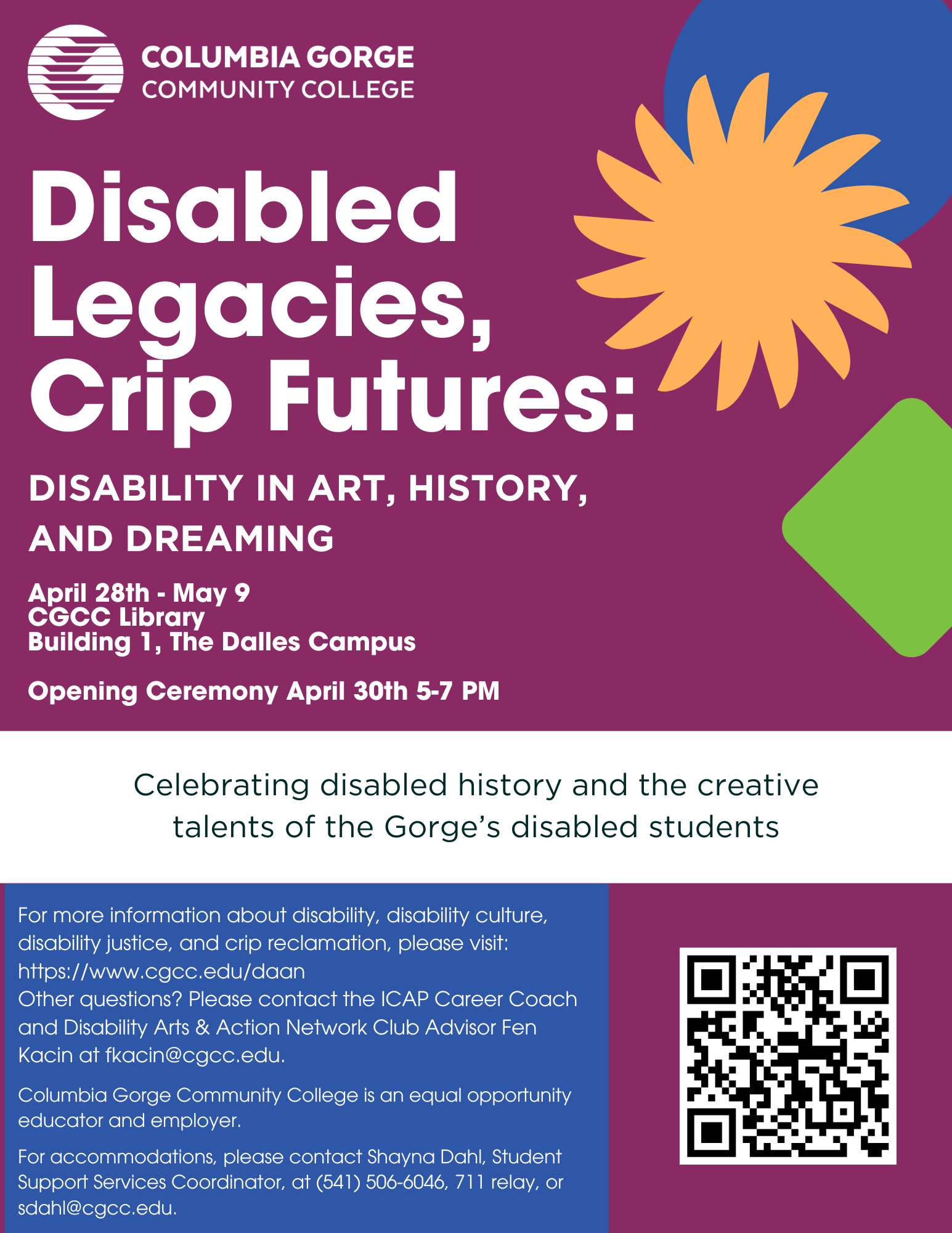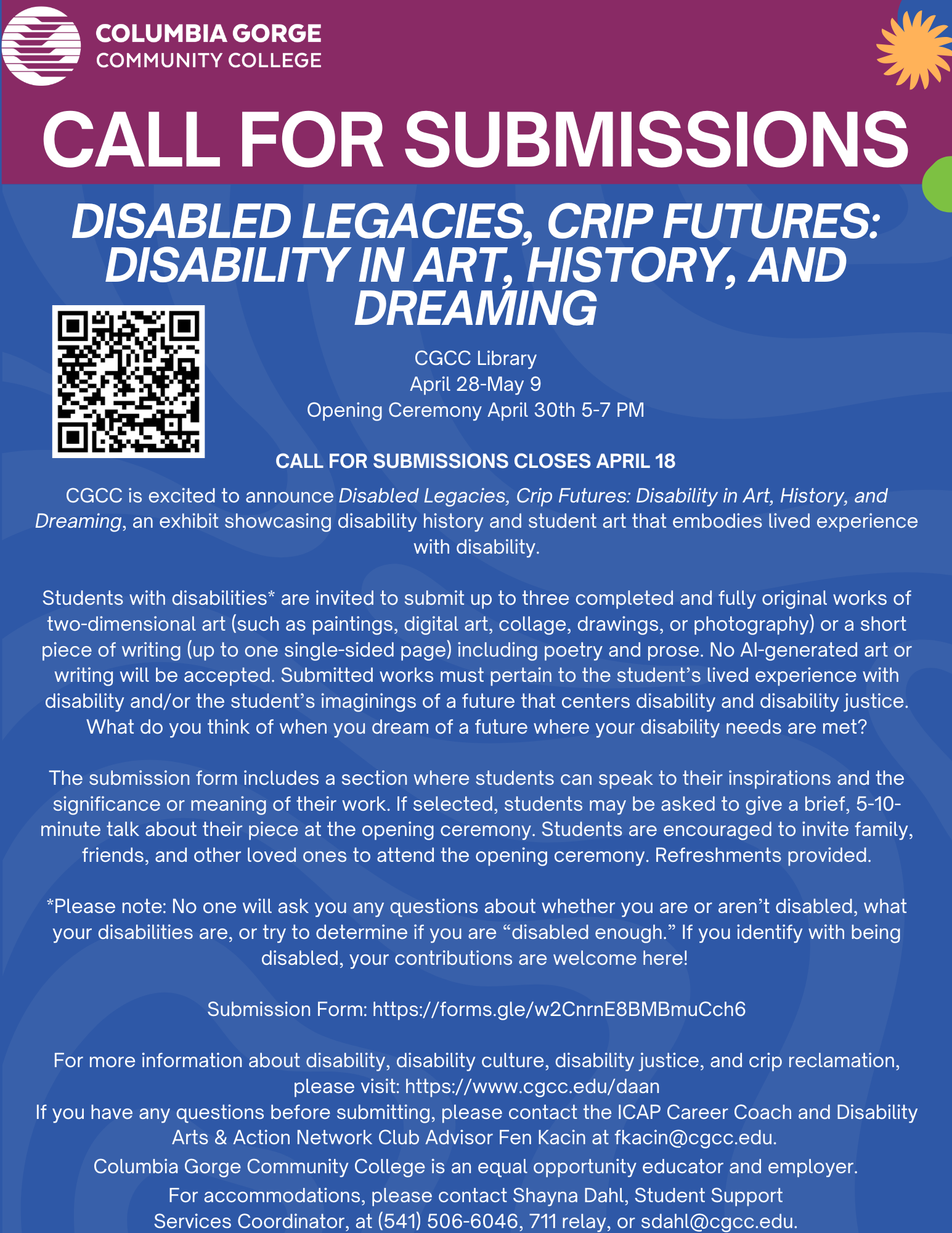Disabled Legacies, Crip Futures: Disability in Art, History, and Dreaming
CGCC is excited to announce Disabled Legacies, Crip Futures: Disability in Art, History, and Dreaming, an exhibit that centers disability history and student art that embodies lived experience with disability.
CGCC Library
April 28 – May 9
Opening Ceremony: April 30, 5–7 PM
Students with disabilities* are invited to submit up to three completed and fully original works of two-dimensional art (such as paintings, digital art, collage, drawings, or photography) or a short piece of writing (up to one single-sided page) including poetry and prose. Submitted works must relate to the student’s lived experience with disability and/or their imaginings of a future that centers disability and disability justice.
What do you think of when you dream of a future where your disability needs are met?
No AI-generated art or writing will be accepted.
The submission form includes a section where students can share the inspiration or significance of their work. If selected, students may be invited to give a brief, 5–10 minute talk about their piece at the opening ceremony. Friends, family, and loved ones are encouraged to attend.
*Please note: No one will ask whether you are or aren’t disabled, what your disabilities are, or whether you are “disabled enough.” If you identify with being disabled, your contributions are welcome here.
Submission form:
https://forms.gle/w2CnrnE8BMBmuCch6
Call for submissions closes April 18
For more information about disability, disability culture, disability justice, and crip reclamation, visit:
https://www.cgcc.edu/daan
Questions? Contact ICAP Career Coach Fen Kacin at fkacin@cgcc.edu.
“There is no one disabled future. But in mine, there is guaranteed income, housing, access, food, water, and education for all—or money has been abolished. I get paid to write from my bed. The births of disabled, Autistic, Mad, Neurodivergent, Deaf, and sick kids are celebrated, and there are memorials and healing and reparation sites on every psych ward, institution, nursing home, youth lockup, and ‘autistic treatment center’ where our people have been locked up and abused. Anyone who needs care gets it, with respect and autonomy, not abuse. Caregivers are paid well for the work we do and are often disabled ourselves. Disabled folks are the ones teaching medical school students about our bodies. Schools have been taken apart and remade so that there’s not one idea of ‘smart’ and ‘stupid,’ but many ways of learning. There is a disability justice section in every bookstore and a million examples of sick and disabled and Deaf and autistic and Mad folks thriving. I have a really sick lipstick-red spiral ramp curving around my house. Because it’s beautiful. Because I want it. Because I get to live free.”
— Leah Lakshmi Piepzna-Samarasinha, The Future Is Disabled: Prophecies, Love Notes, and Mourning Songs

